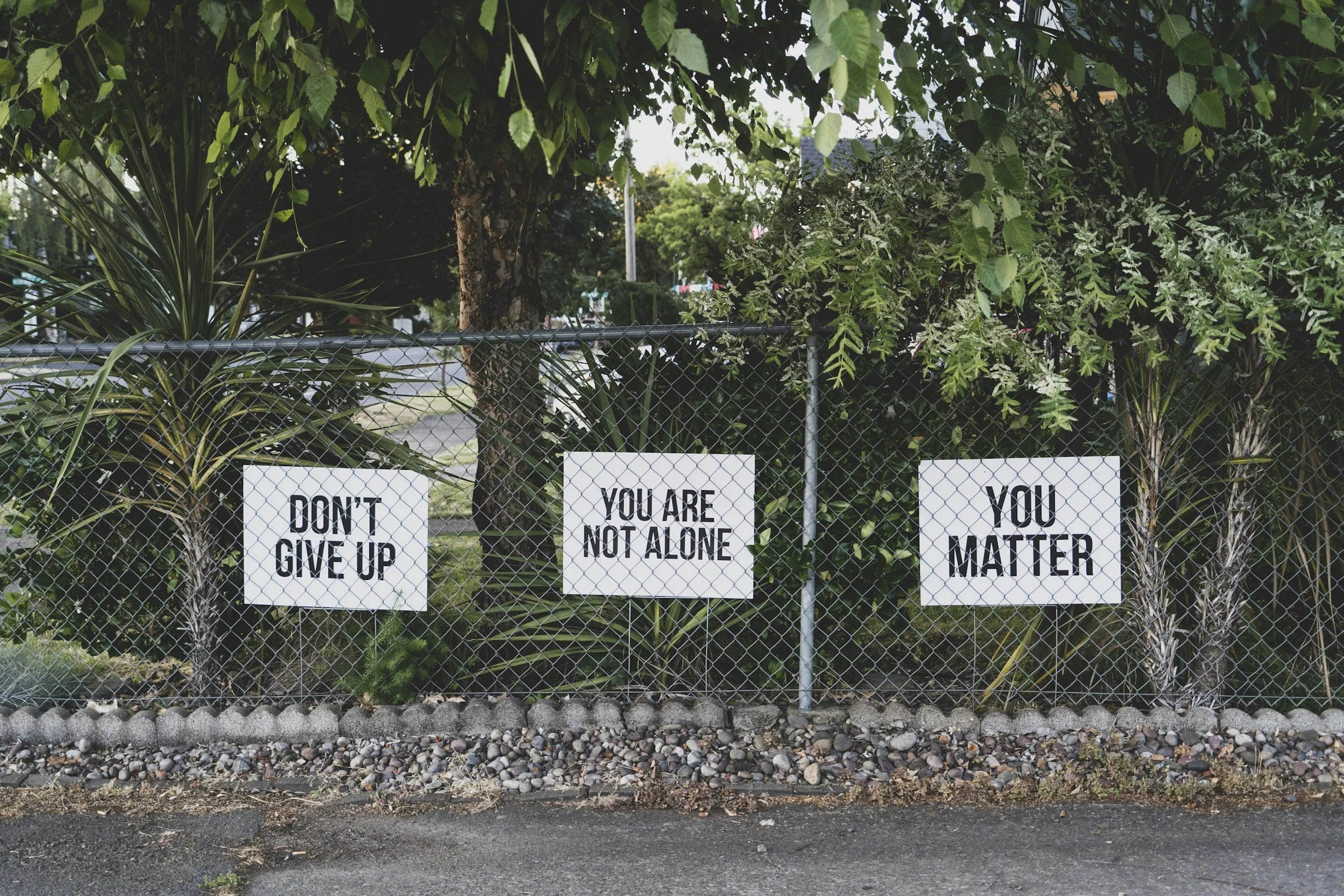The Importance of Setting Boundaries
In our fast-paced world, setting boundaries is more crucial than ever. Boundaries, at their core, are guidelines that define how we interact with others and how we allow them to interact with us. They help maintain balance in our lives, ensuring we protect our well-being and maintain healthy relationships. This article delves deeper into the importance of boundaries, the various types of boundaries, the psychological and emotional benefits they offer, and practical strategies for effectively establishing them.
What Are Boundaries?
Boundaries are invisible lines that define what behavior is acceptable and what is not. They can be physical, emotional, or psychological, and they help us protect our personal space, feelings, and thoughts. By establishing clear boundaries, we can communicate our needs and expectations to others, which is vital for maintaining healthy relationships.
The Concept of Boundaries
Boundaries serve as a framework for defining our limits and expectations. They are not just about keeping others at bay but also about understanding ourselves better. By clarifying our boundaries, we can gain insight into our values and priorities. This self-awareness is essential for personal growth and development. Furthermore, boundaries act as a guide, helping us navigate complex social and emotional landscapes with confidence.
The Role of Boundaries in Daily Life
In our everyday interactions, boundaries play a pivotal role in maintaining harmony and respect. They help us delineate what is acceptable in terms of behavior, time, and emotional investment. Without clear boundaries, we may find ourselves overwhelmed, overextended, and unable to meet our own needs. Boundaries are not static; they evolve as we grow and our circumstances change. Hence, revisiting and adjusting our boundaries periodically is crucial for sustaining a balanced life.
Misconceptions About Boundaries
Many people mistakenly believe that boundaries are barriers that isolate us from others. However, boundaries are not about shutting people out but rather about creating healthy, respectful interactions. Another common misconception is that setting boundaries is selfish. In reality, boundaries are a form of self-care, ensuring that we have the energy and emotional bandwidth to support others effectively. By dispelling these myths, we can embrace boundaries as a positive force in our lives.
Types of Boundaries
Understanding the different types of boundaries can help you identify areas where you may need to set limits. Here are the primary types of boundaries:
Physical Boundaries
Physical boundaries involve your personal space and physical needs. They dictate how close someone can get to you and what kind of physical contact is acceptable. These boundaries are crucial for ensuring comfort and safety. For instance, maintaining a certain distance during conversations or defining who can enter your personal space are aspects of physical boundaries. Respecting these limits helps prevent discomfort and potential conflicts.
Emotional Boundaries
Emotional boundaries protect your emotional well-being by preventing others from manipulating or controlling your feelings. They are vital for maintaining your self-esteem and ensuring you are not responsible for other people's emotions. Emotional boundaries require us to recognize our own feelings and acknowledge that it is okay to feel differently from others. By setting these limits, we can prevent emotional exhaustion and maintain a healthy sense of self.
Time Boundaries
Time boundaries help you manage your time effectively, allowing you to prioritize activities and avoid overcommitting. They involve setting limits on how much time you dedicate to work, family, and leisure activities. By establishing time boundaries, you can ensure that you have time for self-care and personal growth. These boundaries also help in reducing stress and enhancing productivity by preventing the overextension of your resources.
Material Boundaries
Material boundaries involve your possessions and finances. They dictate how you share your belongings and resources with others. Setting clear material boundaries helps prevent misunderstandings and conflicts over shared resources. For example, deciding who can borrow your car or use your personal items are part of material boundaries. By defining these limits, you can protect your assets and ensure fair and respectful interactions.
Mental Boundaries
Mental boundaries protect your thoughts and beliefs, allowing you to have your own opinions without being swayed by others. They are essential for maintaining intellectual independence and fostering a sense of self-confidence. Mental boundaries require us to respect differing viewpoints while staying true to our own beliefs. These boundaries encourage open-mindedness and respectful debates, enriching our interactions and understanding of the world.
Why Are Boundaries Important?
Setting boundaries is essential for maintaining healthy relationships and promoting personal well-being. Here are some reasons why boundaries are important:
Protecting Your Well-being
Boundaries help protect your physical, emotional, and mental health. By establishing clear limits, you can prevent burnout and ensure that your needs are met. Boundaries also help you avoid situations that may be harmful or draining. They act as a buffer against unnecessary stress and pressure, allowing you to recharge and maintain a positive outlook on life. Protecting your well-being is the foundation for leading a fulfilling and balanced life.
Encouraging Healthy Relationships
Healthy boundaries are crucial for maintaining balanced relationships. They allow you to communicate your needs and expectations clearly, reducing misunderstandings and conflicts. By respecting each other's boundaries, both parties can maintain a sense of autonomy and mutual respect. Healthy relationships thrive on clear communication and respect for each other's limits. Boundaries foster an environment where trust and understanding can flourish, leading to stronger and more meaningful connections.
Building Self-esteem
Setting boundaries can boost your self-esteem by reinforcing your sense of self-worth. When you set limits, you demonstrate that you value yourself and your needs. This self-respect can lead to healthier relationships and a more positive self-image. Building self-esteem through boundaries helps you recognize your worth and embrace your unique qualities. As your confidence grows, you become more assertive and capable of pursuing your goals and dreams.
Preventing Resentment
Without boundaries, you may find yourself constantly giving in to others' demands, leading to feelings of resentment. By setting limits, you can avoid overextending yourself and ensure that your relationships remain balanced and fair. Resentment can damage relationships and affect your mental health. By proactively setting boundaries, you can cultivate a more positive and harmonious environment, free from the frustrations that come from unmet expectations.
Enhancing Personal Growth
Boundaries are not just about protection; they also facilitate personal growth and development. By understanding and respecting your own limits, you create a safe space for exploring new opportunities and challenges. Boundaries provide the stability needed to take risks and learn from experiences. As you grow, your boundaries may evolve, reflecting your changing needs and aspirations. This dynamic process of setting and adjusting boundaries supports continuous self-improvement.
How to Set Boundaries
Setting boundaries can be challenging, especially if you are not used to asserting yourself. Here are some steps to help you establish and maintain healthy boundaries:
Identify Your Needs
Before setting boundaries, it's essential to identify your needs and priorities. Reflect on the areas of your life where you feel overwhelmed or taken advantage of. Consider what changes you can make to protect your well-being and maintain balance. Identifying your needs requires introspection and honesty with yourself. By understanding what truly matters to you, you can set meaningful and effective boundaries that align with your values.
Communicate Clearly
Once you've identified your needs, communicate them clearly and assertively to others. Use "I" statements to express your feelings and avoid blaming or accusing language. For example, instead of saying, "You never respect my time," try, "I need more time to focus on my work." Clear communication is key to ensuring that others understand and respect your boundaries. Practice active listening and empathy to foster a constructive dialogue that reinforces your limits.
Be Consistent
Consistency is key when it comes to maintaining boundaries. If you allow others to cross your boundaries occasionally, they may not take them seriously. Stand firm in your limits and remind others of your boundaries if necessary. Consistency demonstrates your commitment to your well-being and reinforces the importance of your boundaries. By being steadfast, you set a standard for how you expect to be treated, reducing the likelihood of boundary violations.
Practice Self-care
Taking care of yourself is an essential part of maintaining healthy boundaries. Ensure you prioritize your needs and engage in activities that promote your well-being. This self-care will help you stay resilient and reinforce your boundaries. Self-care is about nurturing your physical, emotional, and mental health, providing the energy and clarity needed to uphold your limits. By prioritizing self-care, you build a foundation of strength and resilience that supports your boundaries.
Seek Support
If you're struggling to set boundaries, consider seeking support from friends, family, or a therapist. They can provide guidance and encouragement as you work to establish and maintain healthy limits. Seeking support is not a sign of weakness but rather a proactive step toward personal empowerment. By reaching out, you gain insights and strategies that can help you navigate the challenges of boundary setting with confidence and assurance.
Common Challenges in Setting Boundaries
Setting boundaries can be difficult, especially if you're not accustomed to asserting yourself. Here are some common challenges you may face:
Fear of Rejection
You may worry that setting boundaries will lead to rejection or conflict. However, remember that healthy relationships are built on mutual respect and understanding. By setting boundaries, you are fostering a more balanced and respectful dynamic. Overcoming the fear of rejection involves trusting that your boundaries are valid and necessary for your well-being. Practice self-compassion and remind yourself that those who truly care for you will respect your limits.
Guilt
You might feel guilty for setting boundaries, especially if you're used to putting others' needs before your own. Keep in mind that it's essential to prioritize your well-being, and setting boundaries is a healthy way to do so. Guilt can be a significant obstacle, but it's important to remember that setting boundaries is an act of self-love. By prioritizing your needs, you are better equipped to support others in a sustainable and meaningful way.
Lack of Confidence
Asserting yourself can be challenging if you lack confidence in your ability to communicate your needs. Practice self-compassion and remind yourself that your needs are valid and deserving of respect. Building confidence takes time and practice, but each step you take toward asserting your boundaries strengthens your resolve. Celebrate your successes, no matter how small, and continue to develop the skills needed to stand up for yourself.
Overcoming People-Pleasing Tendencies
Many people struggle with boundaries due to a desire to please others. This tendency can lead to overcommitting and neglecting personal needs. Recognize that it's impossible to please everyone and that prioritizing your well-being is not selfish. By setting boundaries, you can cultivate healthier relationships that are based on mutual respect and understanding, rather than unrealistic expectations and constant sacrifice.
Managing Cultural and Societal Expectations
Cultural and societal norms can influence how we perceive and set boundaries. In some cultures, boundaries may be less emphasized, leading to challenges in asserting oneself. Understanding these influences can help you navigate boundary setting in a way that honors both your personal needs and cultural values. By acknowledging these factors, you can find a balance that respects your identity while promoting your well-being.
Conclusion
Setting boundaries is a crucial aspect of maintaining healthy relationships and promoting personal well-being. By understanding the importance of boundaries and learning how to establish them, you can create a balanced and fulfilling life. Remember that boundaries are not about shutting people out but rather about creating a space where both you and others can thrive. Embrace the power of boundaries and watch as your relationships and self-esteem flourish. Through consistent practice and self-awareness, boundaries become a tool for empowerment, resilience, and personal growth.


